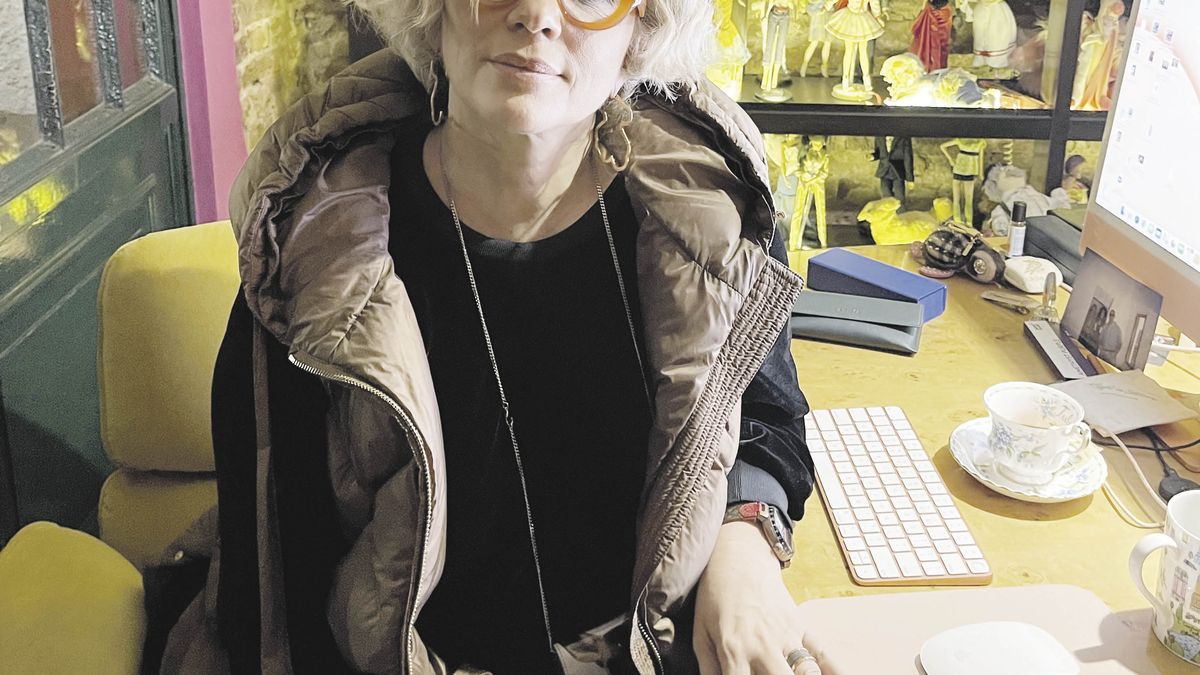Journalist: The platforms were tied to the oversupply of content created by themselves, is that why you aim to find new content?
Marcela Citterio: They got us used to the fact that we can watch the entire series, they catch us, we set up marathons and a lot of money and time is invested so that they finish voraciously in a week or two. The contents are running out and you have to make increasingly aggressive products and sellers.
Q.: Hence your idea of going out to sell content books for series…
MC: The contents for platforms are born from an idea, they hardly ask for a bible anymore. From there, work is done, but many great ideas never arrive at the right time or are not read by the appropriate person, or there was no budget, and they remain in the drawer. It seemed attractive to the author of the book that his story be read in its entirety and in a literary format, even if not immediately, but to escape from presenting a sketch of an idea. How do you get to a platform if you are young, without a track record? If you go with a book, you don’t digress and it can result in a movie or series. And then it will be adaptation. It’s good to have a place to edit also for established authors, and if they don’t make it to the screen, their books remain and fulfill their mission for readers.
Q.: Before reaching readers with a book was quite a mission.
MC: I point to authors who with their book attract readers but also seduce managers when it comes to approving a project, who in turn face a material with paved ground. Anyone can have an idea, there are not that many good ones, and two of us can have the same one and develop it in a different way. Then, going from the book to the adaptation is an art, I have seen many where the spirit of the book is not there. There are extraordinary books but they put many voices in off to say it all. That is also why we offer audiovisual adaptation.
Q.: How is the edition and print run?
MC: Riverside distributes us and will depend on the orders it receives from the bookstores. We launched “Casi amor” and “Mal amor”, by Chiara Citterio, and “Quemacoches”, by Bernardo Beccar Varela, my book, “The girl who did not want to be a princess”, arrives in August, and there is a monthly release but it is movable, now they ask for youth and romantics. I come from the audiovisual medium so I joined Verónica Chamorro in reading stories, to guide towards an interesting literature, not only visually imaginable by a manager but by the reader. Today it also catches the interior of the book, there is design that becomes important. She will also have digital correspondence with e-books around the world and in Spain on demand to print. They will also come out in English so as not to limit because many producers only read that language.
Q.: It comes from the times of the telenovela, when the idea was the author’s, how did it evolve to the showrunner?
MC: When I was a girl, every afternoon was one novel after another. TV belonged to the author, Migré, Maestro and Vainman, Delia Fiallio, but later the producers, Suar, Tinelli, Ortega, took the lead. At that time it was difficult to work in Argentina. In the world the author was always king and until today, the contents are born there.
Q.: Many authors choose self-publishing to publicize their materials. Is it time to pay to publish or take advantage of the reach of the networks?
MC: The networks are sometimes the way to start because it is difficult for them to call you. The Book Fair was a success in terms of people and fundraising. There are influencers who only talk about other people’s books but they have a spark and young people listen to them, you have to stop complaining and put them on your side. They do something that manage to arrive and have so many followers. Everything goes viral, the name of a book, the author, they talk about stories, and I mean all kinds of books, romantic or dragons, it’s nothing more than cool. The fashion of twisted ideas with difficult words to classify as real literature passed. The romantic comedy, if it entertains and is on everyone’s lips, is a success. You have to get rid of prejudices, just look on Amazon for many youth adaptations of vampires, fantasy, or Eragon, which a 15-year-old boy wrote and put together a trilogy of dragons. There are also no ages.
Q.: Orlando for the Virginia Woolf novel?
MC: In addition to that novel, Orlando was called my dad and it is my son’s middle name. We were reading, with my daughter Chiara, Woolf’s “Orlando”, and we felt that this should be the name. I started with the novels because at the age of 7 I stole Corin Tellado’s from my grandmother. She was an underrated yet extraordinary author, in fact she bought all of her books to perform. She marked me, then one reads García Márquez, Borges, Cortázar, but I read many historical romance novels, I always like some romance quotation that catches from love or passion, even for a job. In the infantile JK Rowling, “The Lord of the Rings”, now “The Dwellers in the Air”, an extraordinary trilogy. When I did a lot of television I didn’t have time to read, I came back thanks to my daughter, we have to read again. There were times when I did two or three series at the same time, or before there were 160 chapters and there were no moments, it was being a mother and doing series, writing one chapter a day, now they give you more time, and I take advantage of it.
Source: Ambito
David William is a talented author who has made a name for himself in the world of writing. He is a professional author who writes on a wide range of topics, from general interest to opinion news. David is currently working as a writer at 24 hours worlds where he brings his unique perspective and in-depth research to his articles, making them both informative and engaging.




